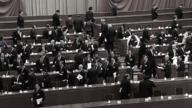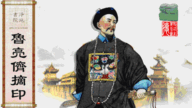【新唐人2011年12月6日讯】日前,在加拿大召开的一场会议上,“中共间谍”问题成为场上焦点。前中共国安谍报官李凤智通过视频对与会人士表示,中共想盗取外国商业机密,想方设法找外国有重要影响力的政治家为中共说话。中共间谍再次成为加拿大舆论焦点。
加拿大召开“工业安全会议”。李凤智通过视频告诉与会者:“资深政治人物永远都是(中国间谍的)头号目标”,“加拿大政府和情报部门应对这个问题抱有警惕,应该重视这一类问题”。
李凤智向《新唐人》表示,一般的间谍机构主要有两个目地:收集情报和影响政要。但中共却还有第三个“不正常”的目地。
李凤智:“主要是让这些政要不但为中共政府说话,还要撒谎。希望这个政要在想说话的时候闭嘴,不要批评中国的人权状况,不要揭他们的丑,维护一个非正义的东西。他(中共)的目地是不一样的。因为中共把维持他的政权是放在第一位的,所以他要利用国外的秘密力量来达到一些特殊目地,来遮丑吧。”
据报导,在当天会议上,加拿大前外交官布莱恩•麦克亚当还详细介绍了中共如何招募众多的“性间谍”内幕。麦克亚当表示,在中国,黑社会与中共情报部门合作,操纵许多妓院、卡拉OK厅和按摩店,设置“蜜糖陷阱”,诱捕粗心大意的西方人。
12月1号,会议召开后第二天,加拿大主流媒体进行了大幅报导。而中共官媒《环球时报》也做了报导,但主题却是“媒体炒作”,令人啼笑皆非。
李凤智还表示,中共正在进行的秘密活动有几大方面,其中包括对法轮功团体,和对一些海内外维权人士所采取的手段。
李凤智:“ 法轮功是其中的一个大方面了,在这方面他(中共)是会下很大工夫的。除了采取各种手段得到一些法轮功的内部消息、所谓的情报之外,他们还会动员国外的一些力量、间谍,所谓技巧性的进行斗争、破坏,再有第三点就是影响一些人,来说中共的好话、说法轮功的坏话,这是必然的。把谎话说出去,把真相遮掩下来。否则他(中共)按正常的来说服别人,说服不了的。”
今年9月,加拿大保守党国会议员德克特与中共《新华社》驻多伦多记者施蓉的桃色事件闹得沸沸扬扬。加拿大《国家邮报》在报导中引用李凤智的话表示,虽然不清楚施蓉是否为中共情报部门工作,但是中共间谍常用记者身份作掩护。
《北京之春》主编胡平:“中共当局打着对外开放的名义,派遣大量间谍到各个国家。来自中共方面的间谍,他们的数量以及他们的活动,都很大,已经引起了世界各国的注意。光是有名有姓的、证据确凿的,我们都已经看过很多了嘛!”
今年8月,日本畅销杂志《邮报周刊》大篇幅报导了中共3万间谍潜伏日本,搜集情报。报导直指中共最拿手的就是设“桃色陷阱”。7月,台湾陆军司令部通讯处少将处长罗贤哲,受中共女间谍色诱成为共谍,被判无期徒刑。3月,韩国驻上海领事馆3名外交官同时被一名上海邓姓女子色诱,交出国家机密。
新唐人记者刘惠、王子琦、柏妮采访报导。
The CCP’s “Pink Trap”
An industry security meeting was recently held in Canada
concerning the Chinese Communist Party’s (CCP) spy,
Li Fengzhi, a former intelligence officer in the
China State Security Department.
In the meeting, which was video-taped, Li said that the CCP
wants to steal confidential foreign commercial data.
It seeks out Canadian politicians who have a lot of influence
in the hope that they will speak out on the CCP’s behalf.
Once again, CCP spies have become the focus in Canada.
In Canada’s industry security meeting, Li Fengzhi said via
video: “Senior politicians are always the CCP’s spies first target.
The Canadian government and intelligence departments should
be wary of and pay attention to this issue.”
Li Fengzhi told NTDTV that normally a CCP espionage agency
has two main goals: collecting intelligence and influencing politicians. But the CCP also has a third goal.
Li Fengzhi: “The third goal is to influence politicians to
speak up on the CCP’s behalf, lie, or
be quiet when these politicians are asked to comment
on China’s human rights.
These Canadian politicians are groomed in such a way that
they don’t expose the CCP’s shortcomings and cry ‘injustice!’ when anyone points the finger at the CCP.
The CCP’s aim is different from other parties and regimes,
as its first priority is to maintain power,
which means it wants to hide behind the power of foreign
politicians outside of China to shield its ugly actions.”
According to reports, Brian McAdam, a former Canadian
diplomat explained in detail that how the CCP recruited a large quantity of female spies.
McAdam said that Chinese espionage agencies cooperated with
gangs in China, to control many brothels, karaoke and massage parlors.
It set up “sweet traps” to seduce careless Westerners.
On December 1, the day after the meeting, Canadian
mainstream media reported extensively on the meeting’s findings.
The CCP’s mouthpiece, Global Time, also reported on the meeting,
but the subject was about Canadian “media hype.”
Li Fengzhi said the CCP’s espionage activities mainly focus
on a few things,
which include the Falun Gong group and a number of
activists inside and outside of China.
Lifeng Zhi: “The CCP spends a lot of money and effort
and uses a variety of means to secure internal information about the Falun Gong group, which the CCP calls “intelligence”.
Beside this, the CCP also instigates some foreign forces and
spies to fight with and destroy the Falun Gong group.
The third part is influencing some people to say good words
on the CCP’s behalf and badmouth Falun Gong, which is inevitable.
The CCP uses these channels to spread lies and shield the truth,
otherwise it can’t convince others and nobody will be trust the CCP.”
In September, the Canadian Conservative MP Bob Dechert
reported that he had a relationship with Shi Rong,
a Toronto correspondent of the CCP’s Xinhua News Agency,
which sparked a public uproar.
Canada’s National Post cited the words of Li Fengzhi.
Dechert didn’t know whether Shi Rong worked for a
CCP intelligence agency or not,
but many CCP’s spies parade around as news correspondents
to shield their spy jobs.
Hu Ping, chief editor of the Beijing Spring magazine:
“CCP authorities send lots of spies to other countries in the name of exchange students.
The spies and their actions have caused quite a stir and
have attracted the world’s attention. We saw a lot of these spies exposed.
In August, Japan’s best-selling magazine, Weekly Post
reported that there are about 30,000 CCP spies in Japan collecting intelligence.
The report pointed out that the most powerful method
used by the CCP is the “pink trap.”
In July, Luo Xianzhe, a major general in the communication
division of the Republic of China Army,
was sentenced to life imprisonment because he became a
CCP spy after he was seduced by a female CCP spy.
In March, three diplomats from the South Korean-Shanghai
Consulate reportedly fell in love with the same woman named Deng.
The diplomats then handed over the country secrets
to the CCP via Deng.
NTD reporters: Liu Hui, Wang Ziqi and Bo Ni





























